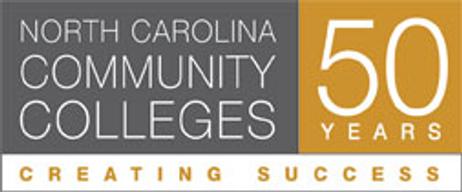High School Students in North Carolina's Community Colleges
According to “Diverse Issues in Higher Education,” students in select areas of North Carolina, such as in the city of Sanford, may be eligible to earn free college credits while still in high school.
Created in 2007, eligible students can apply for the “Lee Early College” program (LEC). By engaging in LEC, high school students attend courses at the nearby Central Carolina Community College (CCCC) campus. Inspired in part by former Governor Easley’s educational agenda, “It’s part of Gov. Mike Easley’s Learn and Earn Early College High School educational initiative in which students graduate in five years with both a diploma and an associate degree, with all credits transferable if they choose to enroll at a four-year institution as a junior post-graduation.”
This video describes the Lee Early College program.
In the first year of its inception, 73 students were able to take advantage of completely free college courses while earning valuable credits. Growing in popularity, the LEC participation numbers nearly doubled after just one year, resulting in 156 LEC students by 2008. Partially funded by a $1.5 million grant from the state of North Carolina (with private donations additionally provided by the Bill and Melinda Gates Foundation), eligible LEC students will be able to engage in this opportunity until 2011, at which point educational leaders will be forced to re-evaluate their budgetary capabilities.
Exceptional Benefits of the LEC Program
Students participating in the LEC program enjoy free tuition, as well as an ability to graduate early, but the benefits don't stop there! In fact, high school students are challenged to meet the expectations of the college curriculum, which certainly prepares them for the rigors of any future career or four-year college path. While the studies are being finalized, preliminary research points to students that obtain better jobs upon graduation.
According to LEC expectations and guidelines, “When it comes to the college courses, students are simply expected to keep up with the class and its requirements, the same as any other college student. In the high school classes, there are high expectations, an emphasis on problem-solving and public speaking, and zero tolerance for late work.”
Best of all, while the college courses are certainly beneficial for “academically gifted” children, many educators find that students who are typically bored or overlooked in a standard public school classroom excel with the LEC resources. As one North Carolina LEC math teacher, John Howard, asserts, “‘A lot of my students are the kinds of kids who were bored in regular school…They don’t think in terms of challenging, they think in terms of interesting, but it turns out to be the same thing.” With a variety of students participating in the LEC courses, students report that their LEC experience has been more “relaxed and social,” as the small group of LEC participants is able to “Bond amid the increased freedom and pressures of a college campus.”
As these young students are guided into the world of adulthood with greater expectations, more rigorous challenges, and ongoing teacher support, North Carolina's LEC participants are paving the way for innovative education programs of the future.
This video also describes the Lee Early College program.
How to Apply for the Community College Program
To apply, students are required to submit an application, a personal essay sample, as well as three teacher recommendations. Upon being accepted, students enter the program at the start of their freshman year of high school. As a result, interested parents and students need to actively begin the application process while the student is still in middle school.
Questions? Contact us on Facebook. @communitycollegereview















